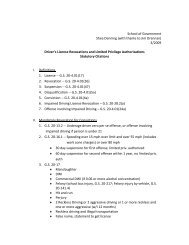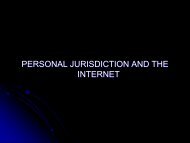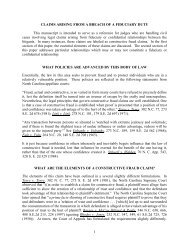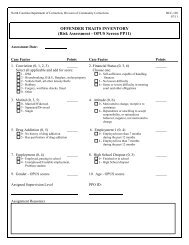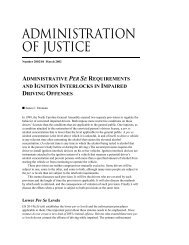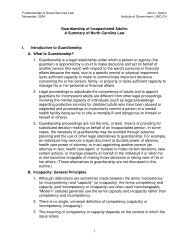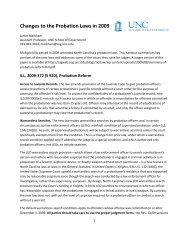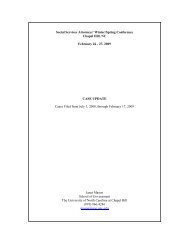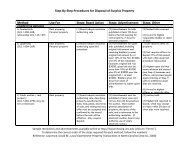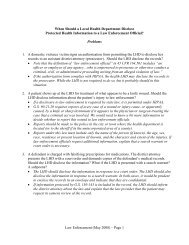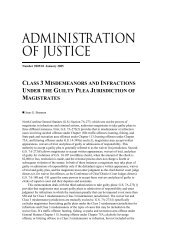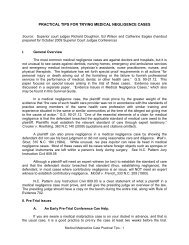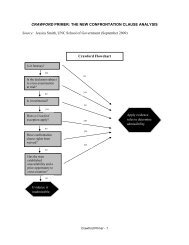Sample Forms and Colloquies
Sample Forms and Colloquies
Sample Forms and Colloquies
Create successful ePaper yourself
Turn your PDF publications into a flip-book with our unique Google optimized e-Paper software.
V. SEEK A MENTOR/ BE A MENTOR<br />
Because the law is a seamless web, mastering the nuances of practice is usually a<br />
daunting task. Experienced lawyers can be of great help to less seasoned practitioners,<br />
but all of us can benefit from consultation with others from time to time.<br />
VI. RESPECT<br />
Professionalism means that each attorney will hold <strong>and</strong> show the utmost respect for the<br />
American court system, the presiding judge, opposing counsel, the client, court personnel<br />
<strong>and</strong> self. Each time that you appear in court you should remember that you are not only<br />
addressing “Your Honor” but you are also addressing a matter of your honor. As long as<br />
you remind yourself of this point, you will not be tempted to engage in personal attacks<br />
on opposing counsel, engage in talking objections, openly criticize rulings of the Court,<br />
or otherwise engage in conduct that would tend to bring the profession into disrepute.<br />
Some examples of the manner in which this respect should be demonstrated include:<br />
1. A lawyer should speak <strong>and</strong> write courteously <strong>and</strong> respectfully in all<br />
communications with the Court <strong>and</strong> opposing counsel.<br />
2. Before scheduling depositions, hearing or motions, a lawyer should<br />
endeavor to contact opposing counsel <strong>and</strong> seek mutually acceptable<br />
settings. Upon learning that a cancellation may become necessary or<br />
requested, opposing counsel should be promptly notified.<br />
3. If a lawyer knows that the client is going to submit to a voluntary<br />
dismissal of a matter, the lawyer should promptly notify opposing counsel<br />
so as to avoid unnecessary trial preparation <strong>and</strong> expense.<br />
4. A lawyer should make a diligent effort to identify clearly for opposing<br />
counsel or parties all changes made in documents circulated for review.<br />
5. In the courtroom, counsel should:<br />
a. Avoid interruption of opposing counsel except when necessary to<br />
voice an objection.<br />
b. Always offer an exhibit or provide a copy in advance to opposing<br />
counsel before presenting the exhibit to a witness.<br />
c. Make reasonable efforts to resolve discovery disputes prior to seeking<br />
intervention by the Court.<br />
d. Act <strong>and</strong> speak respectfully to all court personnel.<br />
e. Avoid visual or verbal displays of temper toward the Court,<br />
particularly upon an adverse ruling from the bench.<br />
6. In the courtroom, a judge should:<br />
a. Avoid visual or verbal displays of temper toward counsel.<br />
b. Accommodate reasonable personal requests by lawyers.



